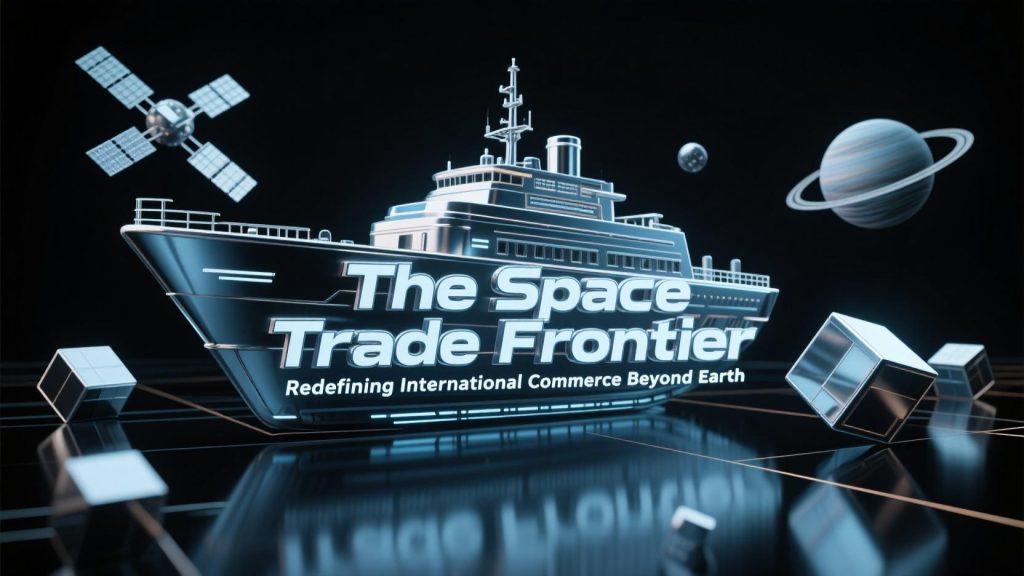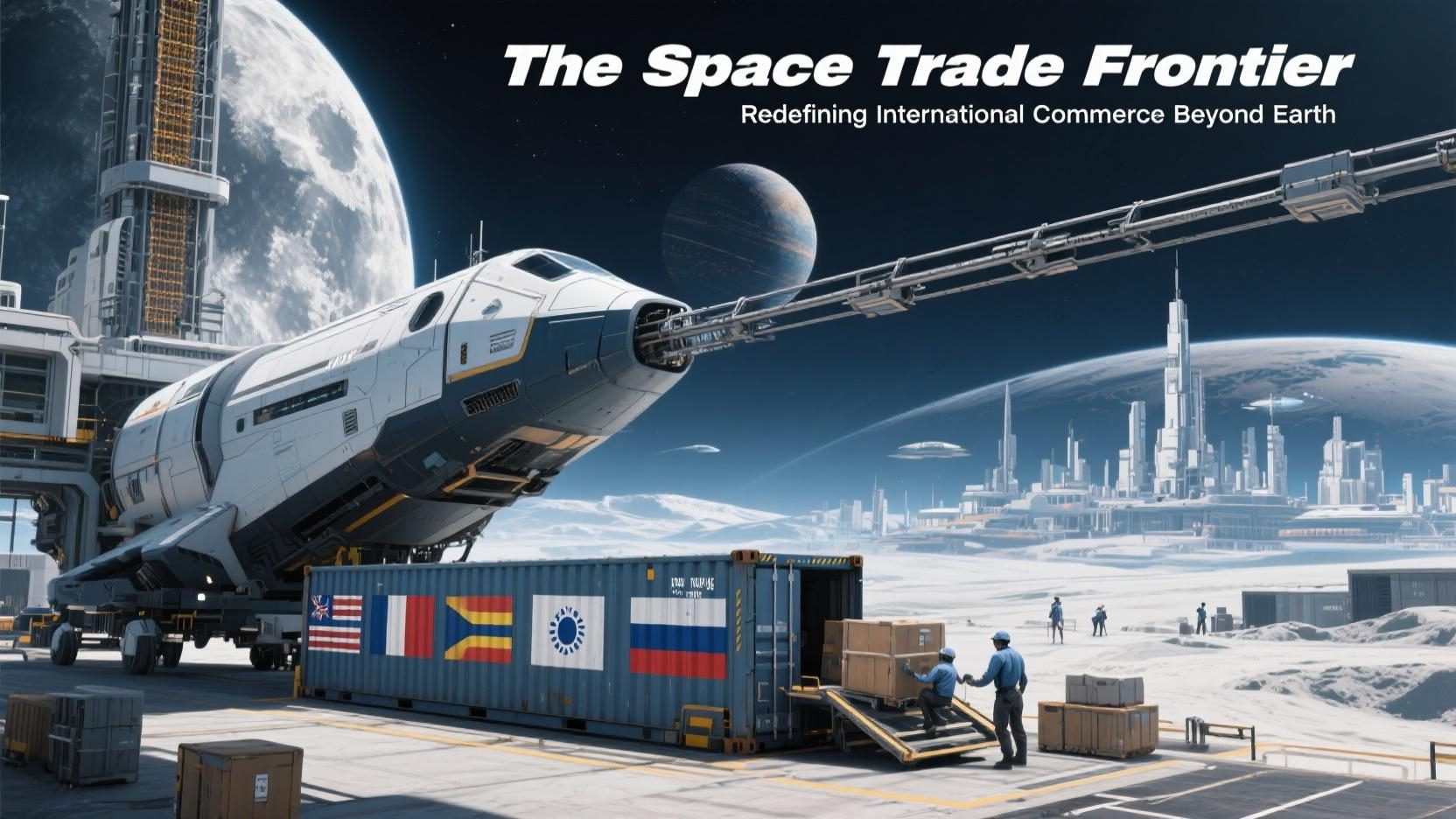As nations race to dominate the space frontier, international trade is extending beyond Earth. Space is no longer an abstract realm of exploration — it has become a bustling economic zone, reshaping global commerce. By 2035, space-based supply chains, lunar mining, and asteroid resource extraction will redefine how nations trade, making space commerce the next global economic engine.
New Space Trade Lanes
With the advent of reusable spacecraft, lunar spaceports, and satellite logistics platforms, the traditional constraints of global trade disappear:
-
🌕 Lunar Resource Export: Helium‑3, water ice, and rare earth elements extracted from the lunar surface can now be shipped back to Earth, serving as the foundation for fusion energy and next-gen electronics.
-
🚀 Space-based Supply Chains: Space factories built in microgravity environments produce pharmaceuticals, superconductors, and optical fiber at purity levels unattainable on Earth.
-
🌍 Earth–Orbit Trade Routes: Space elevators and magnetic launchers create seamless connections between planet and orbit, slashing transport costs by 90–95%.

-
The New Rules of Space Trade
As commerce expands beyond national borders, governance and integration evolve:
✅ International Space Trade Framework: New treaties like the Space Resource Governance Accord balance commercial interests with environmental stewardship, making space commerce a global commons.
✅ Multinational Spaceports: Platforms like the Gateway Lunar Station and SpaceX’s Starbase evolve into free‑trade zones, governed by multinational consortia.
✅ Space‑Native Finance: Satellite‑based digital currencies and decentralized ledger technologies enable cross‑border transactions and automated payments across space supply chains.
Challenges and Opportunities
The space trade revolution is not without its dilemmas:
-
⚔️ Geopolitical Frictions: Competition for lunar mining rights may intensify tensions between nations, reshaping alliances and global supply chains.
-
⚡️ Technological Barriers: High entry costs and long R&D timelines could deepen economic divides between space‑faring nations and those left behind.
-
🌱 Environmental Oversight: Protecting lunar landscapes and space ecosystems is critical for sustainable growth and long‑term exploration.
The Final Frontier of Commerce
As space becomes the next global marketplace, nations and businesses must adapt to new economic and legal realities. The era of space‑based international trade is not a speculative future — it is happening now, reshaping global commerce and challenging traditional economic paradigms.
Those who master this new space frontier will redefine international trade for the next century, making space commerce a cornerstone of global prosperity and cooperation.









